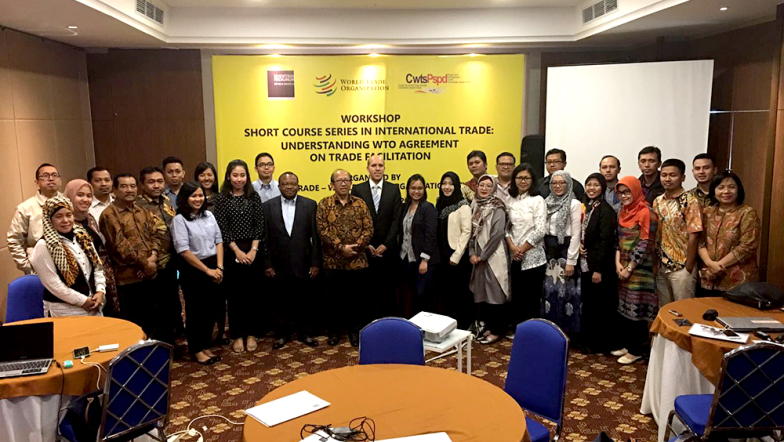Workshop on Trade Facilitation Agreement takes place at Universitas Gadjah Mada

A workshop on the WTO’s Trade Facilitation Agreement and its economic impact was held from 6 to 8 June 2017 at Universitas Gadjah Mada, a member of the WTO’s Chairs Programme. The workshop was held at the request of the Indonesian Chair and took place at the university’s Center for World Trade Studies in Bogor. The course was jointly organized with Indonesia’s Ministry of Trade. Participants were reminded that WTO members concluded the trade facilitation negotiations at the 2013 Bali Ministerial Conference. The main elements of the Trade Facilitation Agreement (TFA) were subsequently outlined to the participants so that they could gain a better understanding of the various categories for trade facilitation measures and the special and differential treatment provisions for developing countries. Officials from Indonesia's Ministry of Trade provided various presentations, including on the state of play regarding trade facilitation in Indonesia, the trade facilitation measures already in place and those for which reforms are planned. The participants were also informed about the key challenges remaining in Indonesia's progress towards ratification of the TFA. The course also provided a platform for participants to discuss how to establish Indonesia's Trade Facilitation Stakeholders Forum. The workshop allowed the participants to discuss and review both theoretical and empirical tools for analyzing the probable macroeconomic implications of the TFA at the national, regional and global level. Comprehensive presentations were provided on how to measure trade costs and on various theoretical tools used to measure trade agreements such as the TFA. Technical tools, such as computable general equilibrium, partial equilibrium models and gravity equation models for measuring trade agreements, were also presented. The workshop has allowed the Indonesian Chair to enhance its research agenda on trade facilitation and the measurement of trade costs. It is expected that the Chair will build on this training by developing new research in this area and on other WTO-related issues. The WTO Chairs Programme aims to support and promote trade-related academic activities by universities and research institutions in developing and least-developed countries. For more information, visit, www.wto.org/wcp




